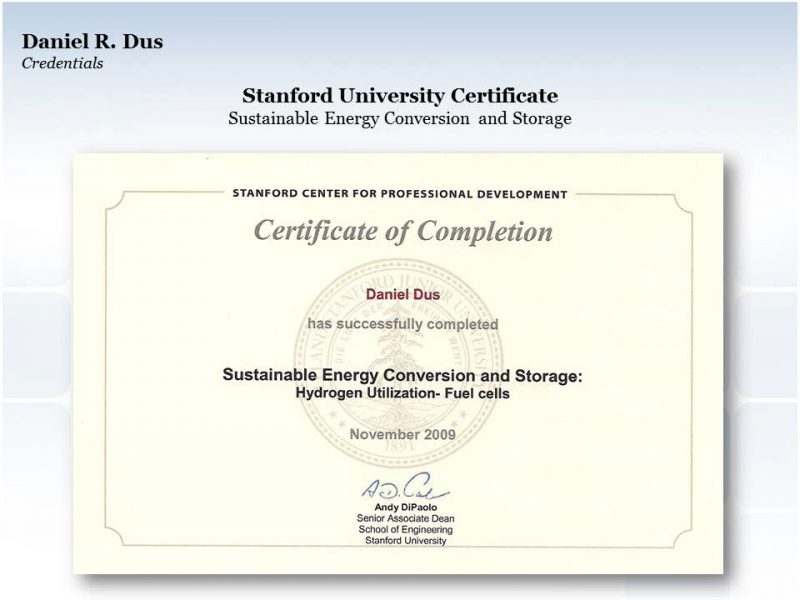STANFORD UNIVERSITY CERTIFICATE: HYDROGEN FUEL CELLS
Stanford University
Sustainable Energy Conversion and Storage: Hydrogen Utilization-Fuel Cells
Stanford University is a private residential college that took 5th place in U.S. News & World Report’s 2011 ranking of the nation’s top schools. About 6,300 undergraduates live on campus each year, and 57% of graduate students choose to live in university-owned apartments. It is recognized as one of the world’s leading universities, and the students have opportunities to participate in a remarkable range of activities.
This course is devoted to review the principles of this increasingly viable technology. Compare the various type of fuel cell technologies. Evaluate fuel cells based on: fuel cell performance,cost, system size, heat produced, weight, stability,and ultimately future applications. Also look at the issues concerning the role of catalysis, material properties, fuel cell charge transport, mass transport, etc. Explore the most likely candidate to bring hydrogen utilization to the leading edge of sustainable energy technologies. This new technology utilizes nanotechnology to produce ultra-thin membranes to overcome the previous limitations of fuel cells. Discover the ways in which nanotechnology and new fabrication processes are affecting the future for fuel cell applications.

